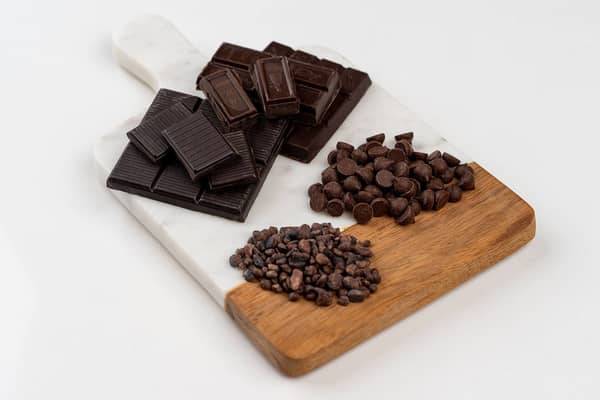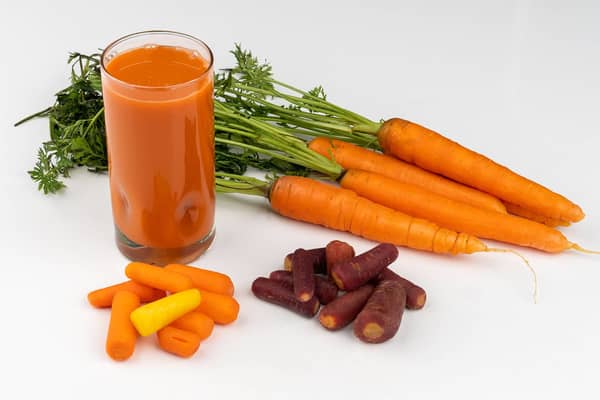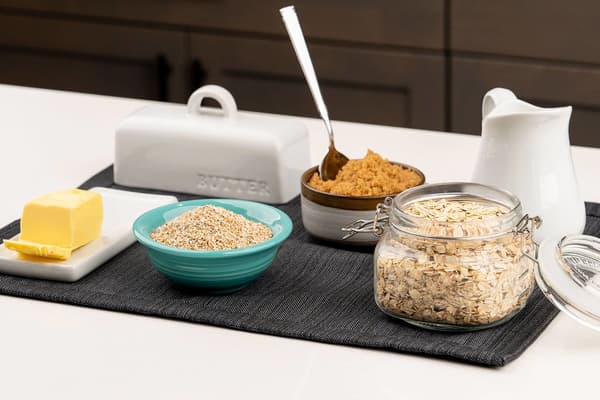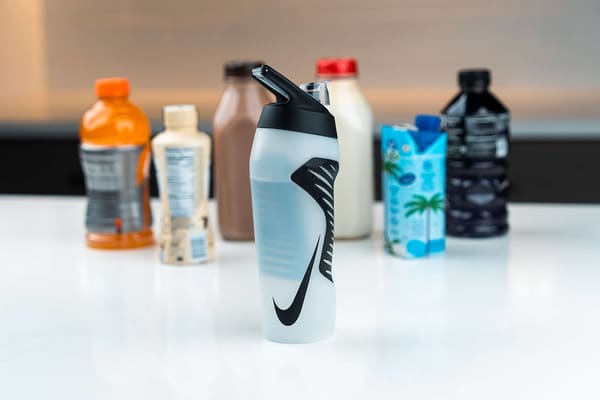How many calories do you need to eat each day?
Nutrition
Assessing calorie intake can be tricky but according to a registered dietitian, the amount of calories you consume each day doesn't matter nearly as much as the quality.

One of the most complicated and frequently asked questions nutrition experts get is this: how many calories should you eat daily?
For decades, researchers have been trying to figure out exactly how many calories people need to eat to gain, maintain or lose weight—and the answers range depending on an individual's goals. Determining how many calories a person needs to eat each day depends on many different factors. Apart from desired goals, these include age, sex, activity level, medical history and lifestyle habits, for example.
(Related: How many calories should I burn in a day? Experts say the answer is complicated)
Despite the myriad opinions on the matter—from health professionals and non-experts alike—it's important to reflect on several questions, ideally with the support of a licensed registered dietitian or doctor who's familiar with your health and needs. Some of the questions about your own calorie needs may include: what sorts of diets or calorie-tracking methods have worked well for you in the past? What is your intention for figuring out your caloric needs? Is it possible to focus more on the quality of calories consumed rather than the quantity?
Before answering these questions, it's important to first understand the definition of a calorie.

What is a calorie?
Simply put, a calorie is a measurement of energy. Calories from food provide the body with the energy it needs to perform daily functions, everything from doing dishes to going on walks. Historically, the word calorie has been associated with fear—many people's mindset around calories has been "the fewer, the better". When you frame the idea of how many calories to eat daily in terms of fulfilling your energy needs, it can help dismantle any residual fear that may still be associated with the word.
In fact, you need adequate calories to survive. Calories are burnt during all types of exercise—from running to weightlifting—but they are also burnt while sitting down and writing emails, for example. Metabolism is the process of converting food into energy. Then, that energy is used to keep the body alive. Regardless of the type of exercise (or lack thereof), the body needs fuel to burn, the amount just varies from activity to activity.
When calories are removed from the diet, the body is deprived of the energy it needs to carry out daily functions. Think of your body as a car and calories from food as petrol—without petrol in the tank, the car won't be able to move. Much like a vehicle, the body won't run properly without adequate fuel.
The question is, how do you identify what is right for your body's needs?
How to determine your calorie needs
In nutritional science, there are two main formulas used to calculate caloric needs: the Harris-Benedict equation and the Mifflin-St Jeor equation.
Both can be used as a starting point to determine daily caloric intake recommendations; however, according to a review found in a 2005 issue of the Journal of the American Dietetic Association, the Mifflin-St Jeor formula might be more reliable with regards to accuracy. Both equations help determine the basal metabolic rate (BMR), or the number of calories required to perform basic bodily functions, such as breathing. BMR is also used interchangeably with resting metabolic rate (RMR), which is the number of calories the body needs when it's at complete rest.
The Mifflin-St Jeor formula is different for men and for women.
Women: (10 × weight in kg) + (6.25 × height in cm) - (5 × age in years) - 161
Men: (10 × weight in kg) + (6.25 × height in cm) - (5 × age in years) + 5
These equations are used to calculate the amount of energy needed to maintain your current weight. But, bear in mind that number is reflective of what you need if you lead a completely sedentary lifestyle—this calculation does not take activity levels into account. The next step is to multiply that number by the activity factor, which depends on considerations ranging from exercise frequency to recovery from a burn, surgery or certain illnesses—all of which can increase caloric needs. That number ranges from 1.2 (sedentary) to 1.9 (very active).
In theory, your weight will remain consistent if you consume the same amount of daily calories that the equations suggest. Under this assumption, if your caloric intake varies, your weight will fluctuate as a result. And while it may seem attractive to some to use an equation to determine an optimal caloric intake, it doesn't distinguish the quality of calories, which is arguably more important to overall health and well-being.

Quality calories versus empty calories
Choosing to get the bulk of your calories from ultra-processed foods (also known as empty calories), won't be nearly as healthy as the calories found in lean proteins, wholegrains, nuts, fruits and vegetables. In other words, eating 2,000 empty calories versus 2,000 nutrient-dense ones each day will probably have different effects on the body.
An example of this can be seen within the macronutrient, fat, of which one gram contains nine calories. One gram of trans fat contains the same amount of calories as one gram of monounsaturated fat: both are nine calories. Trans fat is found in ultra-processed foods and has been associated with an increased risk of heart disease. Whereas monounsaturated fat, found in avocados, nuts and vegetable oils, is associated with a decreased risk of heart disease. In short, just because two types of fat share an equivalent amount of calories doesn't mean the quality (and their effects on overall health) are the same.
The same can be said for foods advertised as "low-calorie". Just because someone chooses a low-calorie food option doesn't mean it's necessarily more nutritious than one that's higher in calories. For instance, compare a low-calorie food like rice cakes with an avocado. The former may have fewer calories but it has much fewer nutrients and is less likely to promote satiety, whereas the latter is more caloric but contains much more nutrition and can help keep you full.
Whether you are looking to lose weight, gain muscle mass, maintain weight or improve your overall health, most sustainable health and wellness goals require mindfulness around the types of calories being consumed.
(Related: Eat these foods before exercising, says a registered dietitian)
Key considerations about calculating calorie needs
At the end of the day, calorie tracking has its downfalls. For one, it's impossible to determine the exact amount of calories in any given food—even ones with nutrition labels. For this reason, it's important to remember that any calorie count labelled on food items is never absolute.
Secondly, counting and limiting calories does not always result in weight maintenance and can negatively affect psychological health. Take, for example, a study found in a 2018 issue of the Journal of Nutrition and Dietetics that consisted of 1,800 participants—more than half of which were female with the average age of 31. The study authors found that using nutrition information provided on menu labels as a way to limit calorie intake was associated with binge eating and with more weight-related concerns, dieting and unhealthy weight control behaviours compared to those who did not notice menu labels or noticed them but did not use them to limit caloric intake.
The bottom line? Calorie counting should not be taken lightly and for many people, it may not be necessary to know just how many calories you need each day. Working with a health professional, such as a licensed registered dietitian, can help support you and your health goals in a safe and sustainable way.
Words by Sydney Greene, MS, RDN.





